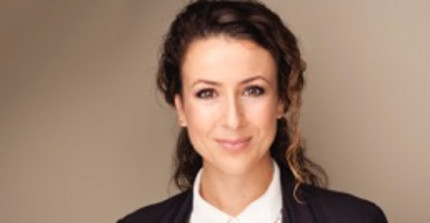Anti-discrimination, equality and inclusion work
Anti-discrimination, equality and inclusion work describes a professional field that is more in tune with the times than almost any other. It is closely linked to political efforts for a fairer society. Those who work in this field are committed to protecting people from marginalization, disadvantage, exclusion and the damage caused by discrimination and to dismantling structural exclusions and barriers faced by disadvantaged groups.
The development of the occupational fields can basically be seen in line with the social movements of the 19th, 20th and 21st centuries. These movements advocated and continue to advocate for the rights of workers, women, LGBTQI+, people with disabilities, Black people, people of color and members of religious minorities in several waves and in different parts of the world. The historical legacy of oppression, persecution, murder, degradation, colonization, exclusion and discrimination of certain groups of people in our society is great and still clearly noticeable in our laws, structures and everyday interactions. Equality, anti-discrimination and inclusion work addresses this legacy, raises awareness of these obvious and subliminal injustices and aims to eliminate them.
The activities in the field of anti-discrimination, equality and inclusion work are diverse: this includes political and strategic work, such as the work of equality or inclusion officers in public institutions or spokespersons in political parties and associations, but also awareness-raising, information and educational work, e.g. in the form of educational projects, community and participatory work, as well as political, cultural and social self-organization and activist work, e.g. in the form of awareness-raising campaigns, demonstrations and lobbying by various groups. This can take the form of educational projects, community and participatory work as well as political, cultural and social self-organization and activist work, e.g. in the form of awareness campaigns, demonstrations and lobbying by various groups, organizations and movements.
Antidiscrimination and diversity work
Gender equality work
Disability inclusion work
Depending on the position and focus, there are overlaps between these areas of activity. For example, a women's representative can sit on committees and develop guidelines for dealing with each other, as well as hold educational events and counseling sessions to inform those affected about their rights. There is also a lot of thematic overlap, as power and inequality structures very often have an impact on a person's experiences of discrimination (keyword: intersectionality).
Depending on the area of work, topic and specific laws and guidelines, equality, anti-discrimination and inclusion work is carried out on a voluntary or full-time basis. In recent years, however, the field has become increasingly professionalized and more full-time positions have been created in public institutions.
In the private sector, HR managers and freelance trainers as well as management consultancies can specialize in equality, anti-discrimination, inclusion and diversity issues. Freelance trainers and coaches in turn advise and educate not only companies, but also public and civil society organizations.
Other areas of application are civil society organizations that advocate for the rights and concerns of marginalized people and employ specialists and managers from various disciplines for this purpose.
Graduates of degree programs in the social sciences, humanities, communication studies, education, or social work who already focused on these fields during their studies are particularly likely to pursue careers in equality, anti-discrimination, and inclusion work. However, this professional field is also open to career changers from entirely different disciplines, as entering the profession often occurs through voluntary engagement within an institution or organization. A strong personal interest and commitment often play a key role in appointments or recruitment.
Almost everyone working in these areas undergoes continuous further training and certification to build, expand, and demonstrate their own expertise.

